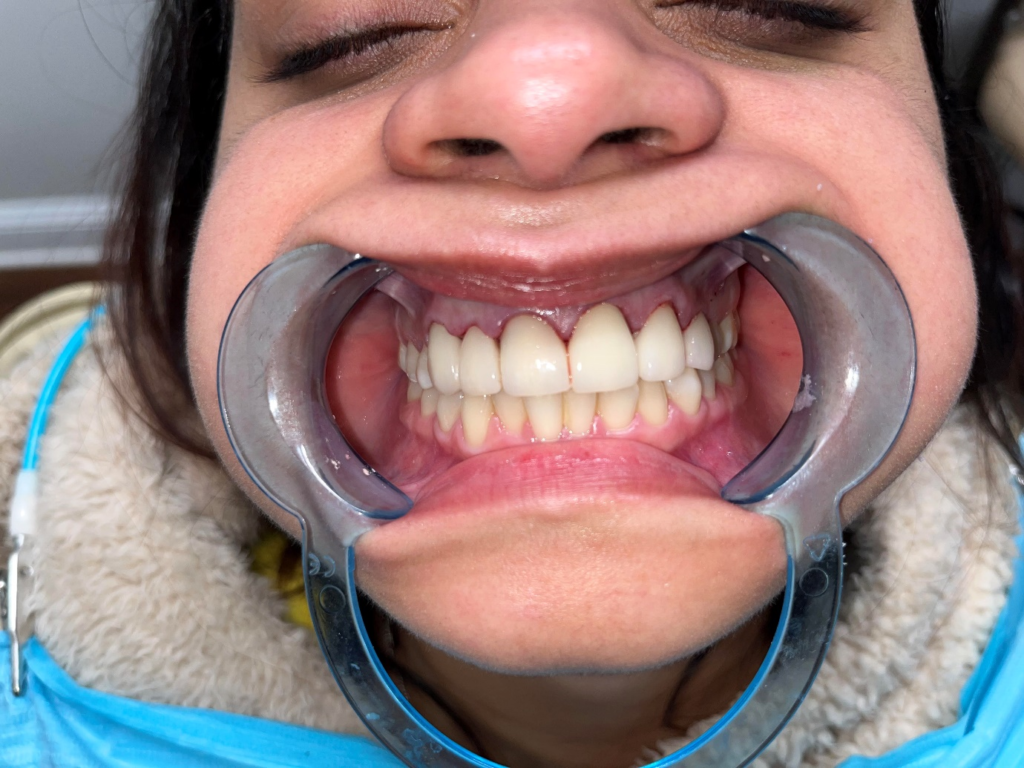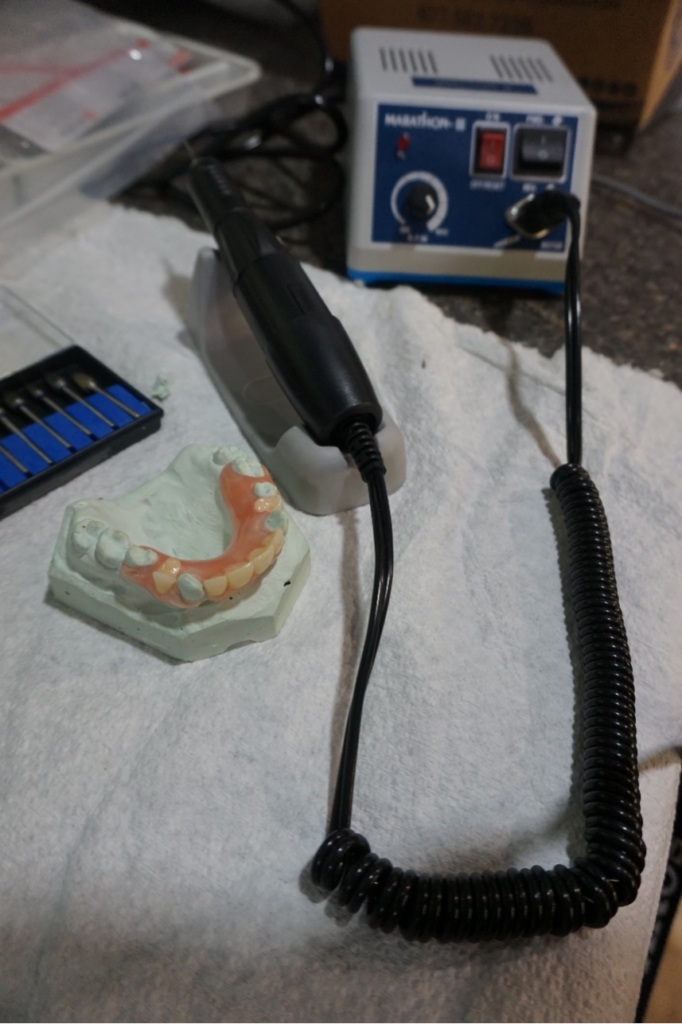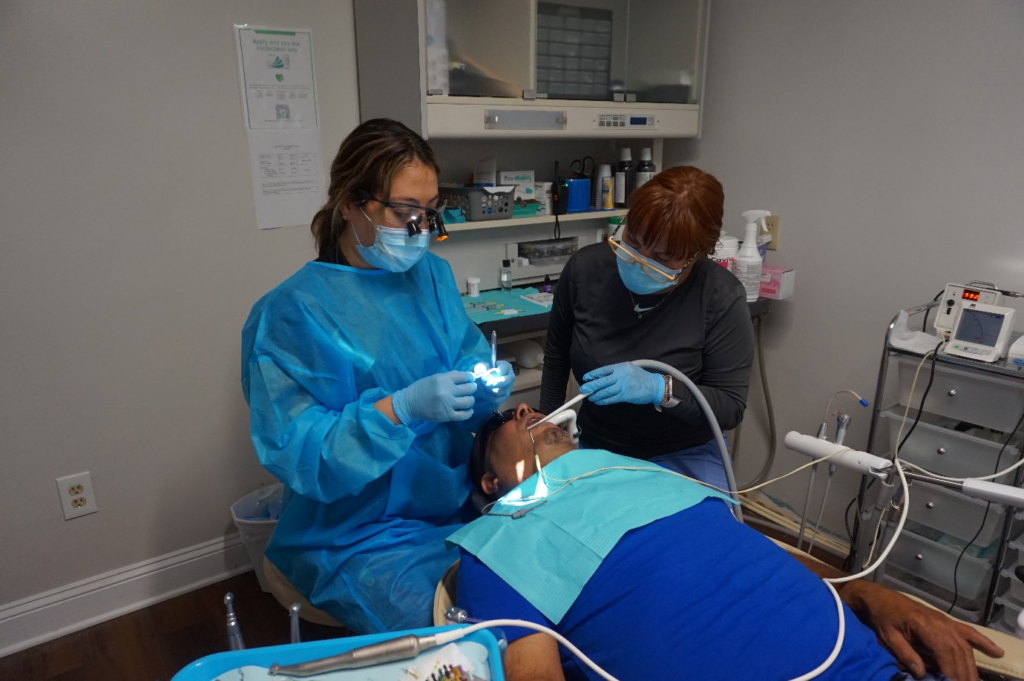Dental anxiety is a common illness that affects a large number of people, creating acute worry and uneasiness about dental check-ups and operations. This anxiety can take the form of minor worry or a severe phobia, causing some patients to postpone getting critical dental care entirely.
But luckily, with a greater understanding of this phenomenon, doctors across America are now adopting various strategies to minimize dental anxiety for their patients. Here’s an in-depth exploration of dental anxiety and how to overcome it using multiple strategies.
What Causes Dental Anxiety?
Dental anxiety can be caused by various circumstances, including a fear of pain, previous traumatic experiences, sensory triggers such as the sounds and odors of a dental facility, and a sensation of loss of control.
The fear of pain, in particular, is a significant cause of dental anxiety. Injections, drilling, and tooth extraction are all examples of dental operations that may be viewed as painful. Previous negative experiences, such as painful or traumatic dental procedures, might also contribute to increased anxiety.
Furthermore, the sounds, sights, and scents of the dentist’s office environment, such as the sound of dental equipment or the odor of antiseptics, might cause anxiety. Dental anxiety can be exacerbated by a sense of helplessness or apprehension about the unknown.
Overview of Sedation Dentistry & Its Types
Among the various strategies employed to address dental anxiety is sedation dentistry. This approach uses sedatives to induce relaxation and tranquillity during dental operations and is a beneficial alternative for people who suffer from dental anxiety. Generally speaking, two sedation techniques are commonly used, namely nitrous oxide inhalation and oral sedation.
Nitrous Oxide
Nitrous oxide inhalation, commonly referred to as laughing gas, is a well-known and widely used mild sedative. It is an efficient and secure procedure that has been used for many years in dentistry, which our dentists have also mastered. Giving a dosage of nitrous oxide is fairly straightforward and includes the placement of a tiny mask on the patient’s nose. The patient breathes in a carefully calculated combination of nitrous oxide and oxygen through this mask.
Nitrous oxide produces relaxation and lowers dental anxiety, making the patient more relaxed during their procedure. It’s important to note that nitrous gas sedation does not make the patient unconscious. Instead, it preserves consciousness during the treatment, allowing for excellent conversation with the dentist. This provides immediate input and ensures the patient’s comfort.

Oral Sedation
In contrast, oral sedation entails taking a prescription medicine before the dentist’s treatment, the intensity of which can be manipulated according to your anxiety levels. Benzodiazepines are commonly utilized for oral sedation. These drugs have sedative effects and can cause sleepiness and relaxation. For both safety and effectiveness, patients must closely follow the dentist’s advice regarding medication time and dose.
Oral sedation may vary from mild to moderate, contingent upon the preferred degree of sedation the client requires. This strategy is especially beneficial for people who have significant dental anxiety or for lengthier and more sophisticated dental operations.
Managing Dental Anxiety: Strategies for a Stress-Free Visit
Overcoming your dental phobia is an important step toward maintaining good oral health. Fortunately, various ways might help you manage your dental anxiety and enjoy an anxiety-free dental visit. You can overcome your worries and get the dental treatment you require by using these approaches.
Open Communication and Trust
Maintaining open contact with your dentist is critical in dealing with dental anxiety. Sharing your dental anxiety issues, previous unpleasant experiences, and particular triggers that create anxiety might assist your dentist in better understanding your requirements.
A compassionate and sympathetic dentist will collaborate with you to develop a treatment plan that addresses your concerns. Understanding that your oral surgeon is mindful of your worry and is working to alleviate it might help to put your mind at ease.
Relaxation Technique
Learning and practicing relaxation techniques is another strategy that can help to alleviate dental anxiety. Meditation, deep breathing, and gradually loosening your muscles are all useful relaxation strategies that can help you calm down and relax during dental operations.
You can achieve a sensation of calm and tranquillity by focusing on how you breathe and actively releasing muscle tension. To enhance the relaxing experience and provide a more comfortable environment, certain dental clinics may provide amenities such as calming music or noise-canceling headphones.

Divert Your Attention
Redirecting your awareness can be a helpful method if you’re experiencing excessive sensory stimulation during dental operations. Listening to a podcast or audiobook, or watching a television program or movie during treatment will help you focus on something other than the dental setting and make the whole thing more enjoyable. These hobbies can divert your attention and create a sensation of escapism, decreasing anxiety and increasing relaxation.
Gradual Desensitization
A gradual desensitization technique can be a useful strategy for people who have heightened dental anxiety. Beginning with short, non-intrusive dental sessions, such as frequent check-ups or dental cleanings can assist you in acclimating to the dental atmosphere and developing trust in your dentist.
You can progressively overcome your worries by gradually advancing to more comprehensive treatments, such as tooth fillings or root canals. This method gradually desensitizes you to the dental encounter and steadily raises your level of relaxation over time.
Sedation Dentistry
Finally, sedation dentistry might perhaps be the most beneficial alternative in cases of acute dental anxiety, since other treatments may not provide adequate comfort. Oral sedation and nitrous oxide inhalation are two regularly used ways to produce calm and minimize anxiety during dental treatments.
Both oral sedation and Nitrous oxide inhalation are useful methods for reducing dental anxiety and creating a more peaceful environment for patients. These techniques can considerably enhance dental visits for people who are afraid or anxious about going to the dentist.

If you’re a resident of Jacksonville, FL in search of an emergency dentist to safely conduct dental surgery while managing your dental anxiety, then your search is finally over! Our experienced dental experts at Jax Smiles Dentistry offer varying levels of sedation that can be administered depending on how intense your anxiety is to make your treatment more efficient and discomfort-free.
You can also visit us for your routine dental exams and periodontal gum care to maintain your oral health, in addition to various cosmetic dentistry services as well. Contact us today to schedule your appointments!


